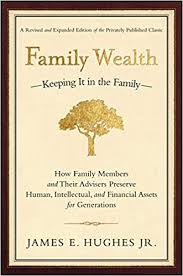A Social Compact for Wealth Preservation

To successfully preserve its wealth, a family must form a social compact among its members reflecting its shared values, and each successive generation must reaffirm and re-adopt that social contract.
There's a family in Europe, now in its 10th, 11th, and 12th generations, with many hundreds of members, that reaffirms and re-adopts its family constitution every year at a family meeting. The meeting takes place in the village where the family began.
Although the meeting has an extended agenda, its acknowledged main purpose is to remind family members who they are, where they come from, and in what way they are "different."
The family controls an extremely successful global business as well as substantial financial assets. Most members of the family lead comfortable lives financed by the earnings of the family assets. Very few work for the family, but all take their roles in selecting family representatives very seriously. All are educated about the family history and its constitution.
When they reach their majority they join the earlier generations in the annual reaffirmation of the family constitution and choose electing representatives to carry out the system of family governance set out in the constitution.
This family is succeeding superbly in wealth preservation.
This family demonstrates how a social compact among its members to govern themselves leads to successful family wealth preservation. The concept of a social compact as the foundation for a system of governance comes from John Locke's second treatise of government.
Excerpt from the Book: Family Wealth - Keeping it in the Family
